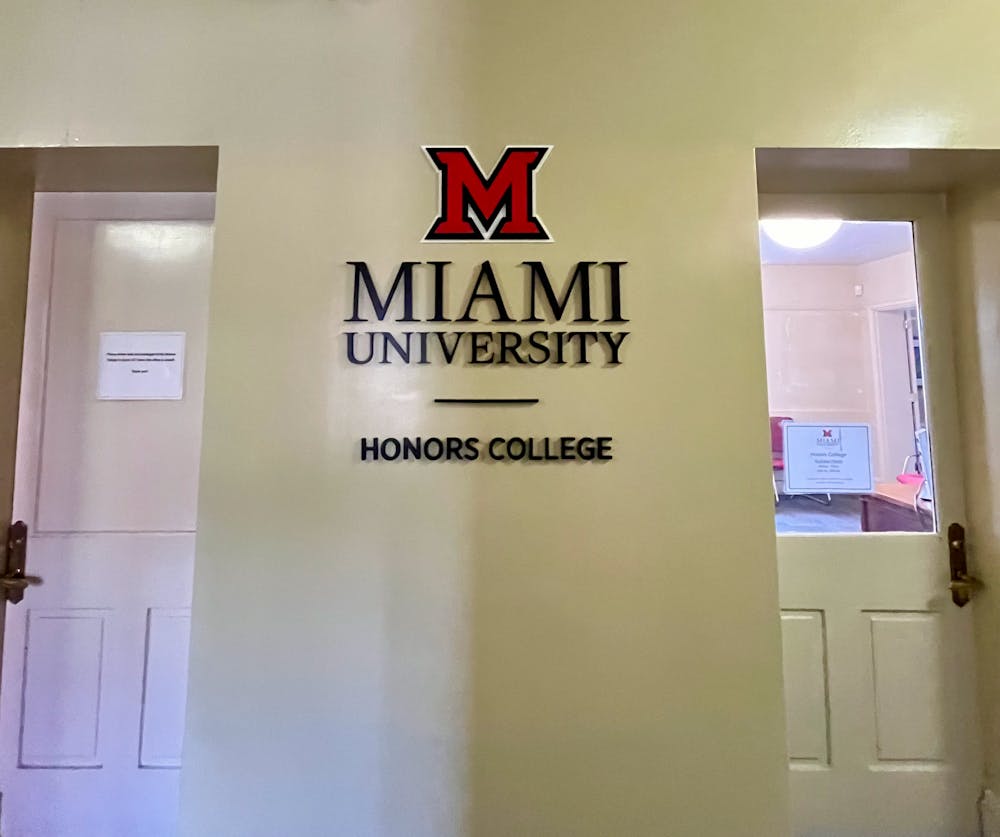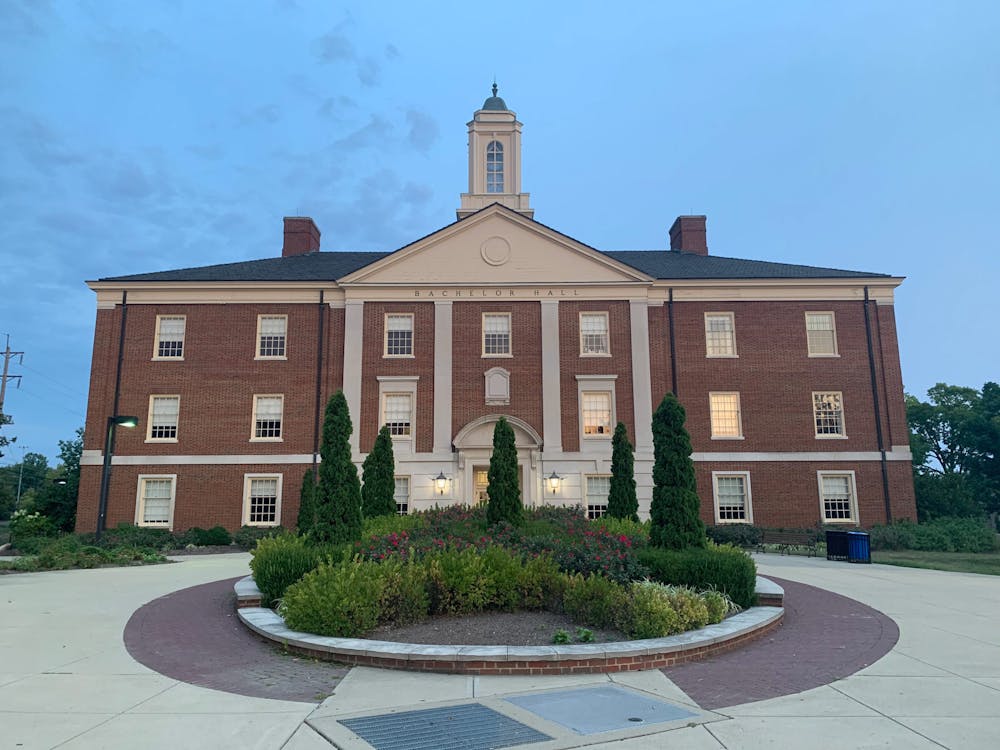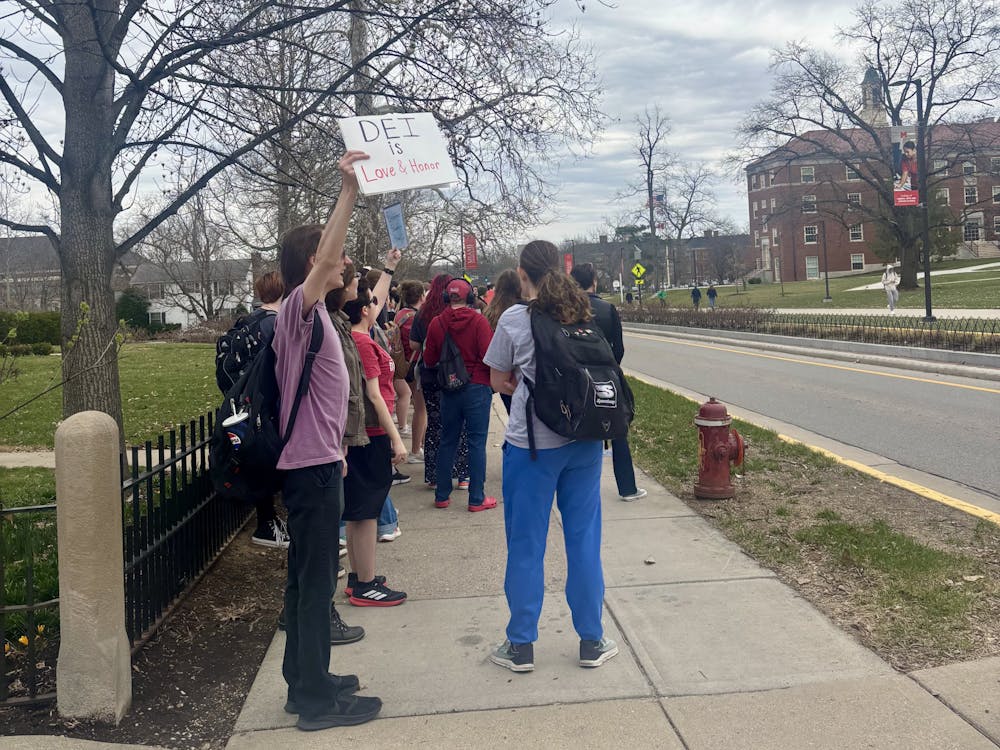When Miami University announced that it was re-organizing its Honors Program in April 2020, students were introduced to the newly renamed Honors College. The following fall semester, a whole new set of requirements and opportunities were rolled out for honors students to utilize.
“We were looking at comparable competitor institutions, and saying, ‘Look at [how their] profile of their student has increased, given the fact that they just started an Honors College,’” said Zeb Baker, the executive director of the Honors College.
After reviewing this data, Baker said the university concluded that having an honors college was necessary to attract top students from across the state and country.
However, rebranding the Honors Program as the Honors College was not the only change Miami made to attract top students from around the world. The transition from the Honors Program to the Honors College brought more academically rigorous classes, opportunities to work one-on-one with Miami faculty, a minimum GPA requirement and a senior capstone project.
Kayla Williams, a first-year public administration and social studies education major, found that there were many things she had to do to remain in the Honors College when she started at Miami last semester.
Honors students are required to maintain a minimum 3.25 GPA, take two designated honors classes in their first year, complete four honors experiences and do an extensive senior capstone project.
“[This semester] I'm doing an honors experience rather than an honors class,” Williams said. “[I’m in a] book club where we read politically based books.”
The requirements that current Honors College students have to achieve are a stark departure from what students in the old Honors Program had to accomplish.
Cameron Tiefenthaler, a senior political science and business analytics major, was admitted into the Honors Program her first year and only had to complete honors experiences.
“There were eight criteria we had to fulfill,” Tiefenthaler said. “Half of them had to be academic-related, and the other half could be professional or leadership experiences. You could do a senior honors thesis, but that was not a requirement. I don't think there were requirements for our GPA.”
But of all the changes, the one that was felt the most was Miami’s emphasis on its honors program and students.
“I think the biggest change was just the emphasis that the university was placing on having this opportunity of the Honors College to exist.” Baker said.
Enjoy what you're reading?
Signup for our newsletter
Tiefenthaler echoed the sentiment.
“[The transition] gave more resources to the Honors Program, more staff, more finances and space to enhance the experience of honors students on campus,” Tiefenthaler said.
Although the Honors College may be more academically rigorous and seems daunting to students, Baker said students are sticking with it. Just 18 of the 600 sophomores who entered Miami as members of the Honors College have left the university, a retention rate of more than 95%.
Although a greater amount of resources were used to shape the Honors College, the changes to the student acceptance process were the greatest factor in how the Honors College looks today. While 83% of students who submitted applications to Miami were admitted in Fall 2023, the acceptance rate for the Honors College was just 22%, according to Baker.
“That was equal to the acceptance rate for all undergraduate programs at [UNC] Chapel Hill and [UC] Berkeley,” Baker said. “So, yes, it’s become more competitive and a little bit more selective.”
When the Honors Program transitioned into the Honors College, it also revamped its admissions process. Originally, students had to write a separate essay to be admitted into the Honors Program. Now, prospective students have to select a box when they’re applying to Miami that would allow the Honors College to look at just their regular admission application.
“We're doing much more of a holistic review of students, really looking at each student on the basis of who they are,” Baker said. “We want more English majors. We want more teacher ed majors.”
For prospective students who want to apply to the Honors College and may seem intimidated by all of the requirements, Williams said it is all worth it in the end.
“[The Honors College] has set me up for success like no other program at Miami has,” Williams said. “[I’d] absolutely recommend it.”
Now that the Honors College is halfway through its five-year transition plan, Baker expressed that there are many more things for current and future honors students to look forward to.
“We're really at an important moment where we're at the halfway point of a five-year rollout,” Baker said. “We are working with all of our divisions here to really think about how to create really meaningful pathways for students in those divisions to marry honors education and whatever field those students are studying, and I think that's exciting.”




